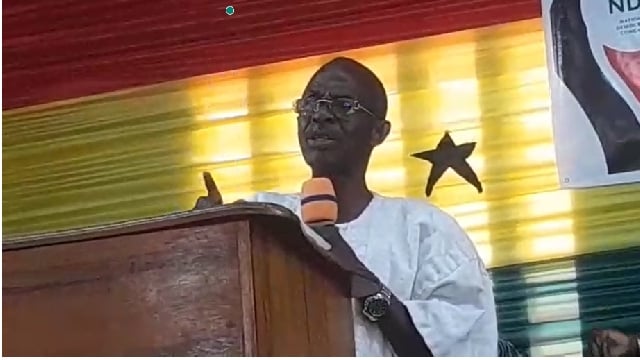The National Democratic Congress (NDC), under the leadership of Chairman Johnson Asiedu Nketia, embarked on a three-day appreciation tour across 16 constituencies in the Eastern Region of Ghana. This tour, spanning from September 17th to 19th, served as a platform for the party leadership to express gratitude to the grassroots organizers and party executives who played a pivotal role in securing the NDC’s historic victory over the New Patriotic Party (NPP) in the 2024 general elections. The victory marked a significant milestone, with John Mahama becoming the first president in Ghana’s democratic history to win a non-consecutive second term.
Asiedu Nketia, addressing enthusiastic supporters in Asamankese, Lower West Akyem, revealed the strategic approach adopted by the NDC in the 2024 elections. He detailed his direct involvement in spearheading campaigns in constituencies historically considered challenging for the NDC. The core strategy involved deploying specialized teams to engage in intensive door-to-door campaigning, a tactic that proved highly effective in swaying voters and flipping previously elusive seats in favor of the NDC. This hands-on approach, coupled with a targeted ground game, ultimately contributed to the party’s resounding success, validating the effectiveness of their campaign strategy.
The 2024 election results showcased a decisive victory for the NDC, with John Mahama securing 56.3 percent of the presidential vote, significantly outperforming NPP’s Dr. Mahamudu Bawumia, who garnered 41.3 percent. Despite post-election legal challenges that momentarily delayed celebrations, Asiedu Nketia remained committed to fulfilling his promise of acknowledging and thanking the grassroots for their tireless efforts. He emphasized the importance of expressing gratitude as a fundamental duty of the party leadership. This appreciation tour, therefore, served not only as a gesture of thanks but also as an opportunity to assess the party’s regional structures, identify areas for improvement, and strengthen the foundation for future electoral successes.
The chairman’s candid approach and willingness to share insights into the NDC’s campaign strategies were warmly welcomed by regional executives and local organizers. They viewed this transparency as a genuine expression of appreciation and recognition of their contributions. Asiedu Nketia’s personal involvement in the campaigns, particularly in the Eastern Region, historically a swing territory, was lauded as instrumental in boosting morale and galvanizing support for the party. The chairman’s presence on the ground signified a commitment to connecting with the people and understanding their concerns, which played a crucial role in shifting the political landscape in the region.
In Lower West Akyem, MP Kwame Owen Frimpong, popularly known as Darling Boy, commended Asiedu Nketia for his leadership and strategic guidance, which contributed to the NDC’s reclaiming of the constituency after 24 years under NPP control. This victory was hailed as a turning point, signaling a shift in the political dynamics of the area. The NDC’s success in Lower West Akyem, a constituency with a history of strong NPP support, underscored the effectiveness of their targeted campaign strategies and the resonance of their message with the electorate.
Beyond expressing gratitude, the tour served a broader strategic purpose for the NDC. It marked the beginning of a concerted effort to maintain party unity and consolidate its grassroots power base as it transitioned from the role of opposition to the responsibilities of governance. Asiedu Nketia’s confidence in openly sharing electoral tactics reflected the party’s firm grip on its organizational machinery and its forward-looking approach to ensuring long-term political success. The tour symbolized a commitment to maintaining strong connections with the grassroots, fostering internal cohesion, and building a robust foundation for effective governance and future electoral victories. The NDC’s focus on grassroots engagement and organizational strength signaled a determination to learn from past experiences, adapt to evolving political landscapes, and solidify its position as a dominant force in Ghanaian politics.














